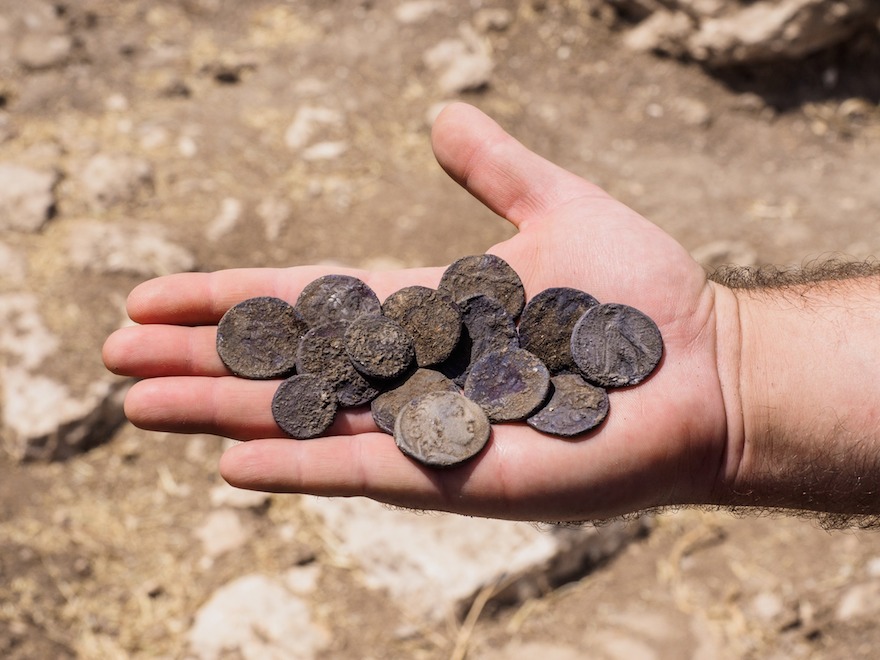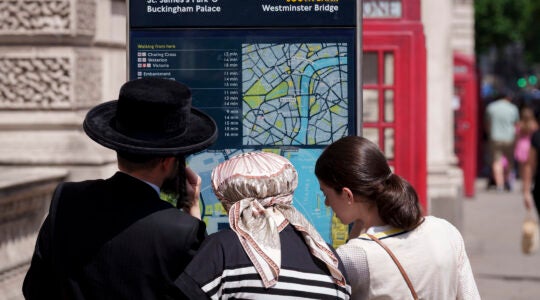(JTA) — A trove of 16 silver coins dating back more than 2,000 years has been uncovered in an excavation in the Israeli municipality of Modiin-Maccabim-Reut.
The Hasmonean-era coins, which were found in April, were hidden in a rock crevice against a wall of an agricultural estate also discovered during the excavation, the Israel Antiquities Authority announced Tuesday.
Avraham Tendler, director of the excavation, under the auspices of the Israel Antiquities Authority, said in a statement that the find is a “rare cache” of shekel and half-shekel coins that bear the images of King Antiochus VII and his brother Demetrius II.
According to the IAA, the coins appear to have been hidden by the estate’s owner. Donald Tzvi Ariel, the head of the IAA’s coin department, said the coins were organized by year, indicating that the owner may have been a coin collector.
The IAA said the excavated estate where the coins were found belonged to a Jewish family and contained olive trees, vineyards, grain fields, wine presses and an olive press.
Additional coins uncovered at the site — ones stamped with the slogan Freedom of Zion — suggest that the residents participated in a revolt against the Romans in 66 C.E., according to the IAA.
In addition, archaeologists uncovered fortified barriers, hidden rooms connected by tunnels and a hidden space beneath a mikvah, or ritual bath.
The excavation is in preparation for construction of a new neighborhood in Modiin-Maccabim-Reut, a municipality that straddles Israel and the West Bank.
JTA has documented Jewish history in real-time for over a century. Keep our journalism strong by joining us in supporting independent, award-winning reporting.






